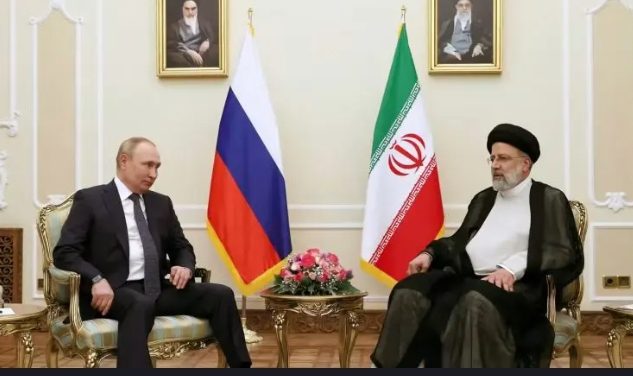Collaboratively, the BRICS nations (Brazil, Russia, India, China, and South Africa) are advancing in their efforts to decrease the reliance on the US dollar in global transactions. By incorporating four new member nations, the alliance is gaining momentum in its initiative to lessen dependency on the US dollar. The incoming member countries are looking forward to the possibility of introducing a BRICS currency, potentially challenging the current dominance of the US dollar in international trade.
If the BRICS nations successfully reduce the use of the dollar in trade, numerous sectors within the US could experience consequences. Specifically, the banking and finance sector might face notable hurdles. A decreased demand for the dollar could impact the Federal Reserve’s management of the currency, potentially resulting in hyperinflation, subsequently affecting the entire economy.

The repercussions of de-dollarization could extend to the technology sector as well. Inflation stemming from an influx of dollars back to the US may cause job cuts and increased operational costs for companies, prompting them to allocate more resources simply to sustain their activities. This could create a ripple effect across the industry, affecting innovation and expansion.
Moreover, the consumer goods and retail industry would likely bear the brunt of these changes. Rising prices due to inflation could lead to elevated costs for everyday Americans, potentially resulting in reduced consumer spending and economic stagnation. This could profoundly impact the overall US economic health, given that consumer spending contributes significantly to GDP.
The attempts by the BRICS nations to de-dollarize have the potential to significantly impact diverse sectors in the US. While the ultimate outcome remains uncertain, it is evident that the global economy is experiencing a significant transformation, necessitating readiness on the part of the US to adapt to these developments.
Russia & Iran Planning to Use BRICS Currency for Trade Instead of US Dollar
The BRICS nations, consisting of Brazil, Russia, India, China, and South Africa, are making substantial progress in creating a new currency to challenge the predominant position of the US dollar in global trade. Russia and Iran, both facing US sanctions, are eager to move away from the dollar and have expressed their intent to transition to the new BRICS currency upon its launch.
As indicated by Iranian Ambassador to Russia, Kazem Jalali, over 60% of the trade between Russia and Iran is presently settled in rubles and riyals, signifying a substantial shift away from the dollar. This strategic move aims to lessen reliance on the US dollar while fostering economic cooperation among BRICS nations.
The establishment of a new unified currency within the BRICS framework is in progress, with the 16th BRICS summit in October expected to determine the fate of the project. The new currency is anticipated to be supported by a blockchain-based payment system known as the BRICS Bridge multisided payment platform, connecting the financial systems of member countries via payment gateways for settlements in digital currencies from central banks.
The potential advantages of a BRICS currency are substantial, including facilitating more efficient cross-border transactions, enhancing financial inclusion, and diminishing the influence of the US on the global platform. Furthermore, it could serve as an alternative to the predominant US dollar and euro in global trade and finance.
However, the timeline for the launch of the BRICS currency remains uncertain, and various technical and logistical challenges must be addressed before it materializes. Nonetheless, the progress achieved thus far indicates a significant shift in the global economic landscape, with the BRICS nations committed to challenging the existing norms and shaping a more multipolar world order.
The BRICS currency presents the potential to transform global trade and finance by introducing a fresh alternative to the predominant US dollar and euro. Though several obstacles need to be overcome, the progress made to date signifies a significant change in the global economic arena, with the BRICS nations intent on establishing a more diverse world order.




